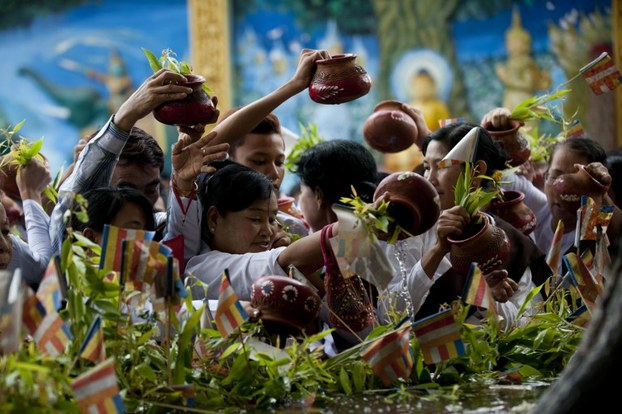




Lawmakers in Myanmar passed contentious legislation on Tuesday that imposes restrictions on interfaith marriages in the predominantly Buddhist country, despite opposition from rights advocates who say it discriminates against women and Muslims in the conservative, predominantly Buddhist country.
The law requires Buddhist women and men of other faiths to register their intent to marry with local authorities, who will display a public notice of the engagements. Couples can marry only if there are no objections; but if they violate the law, they could face imprisonment.
Critics have argued that the legislation does not apply the law equally to all people and flies in the face of domestic and international human rights standards.
“This kind of law shouldn’t be issued by parliament because it is not an essential law for all ethnic [groups] in Myanmar; it is just a law that discriminates against ethnic people when it comes to religion,” said Zar Talam, an ethnic Chin lawmaker from the Htantlang constituency of Chin state in western Myanmar.
Proponents, however, say the law will protect Buddhist women who marry outside their faith.
“This law was written for Myanmar Buddhist women who marry men from other religions so they have equal rights in marriage, divorce, inheritance and taking care of children, as well as have effective protection,” said Saw Hla Tun, a member of parliament's Draft Law Committee.
The law is part of a series of four laws on marriage, religion, polygamy, and family planning proposed by a Buddhist organization called the Association for the Protection of Race and Religion, which is affiliated with a nationalist Buddhist monk group.
Women’s groups and civil society organizations who have opposed the measure issued a statement earlier this year, arguing that the draft law denied women the inherent rights of freedom of survival and freedom of choice.
“We believe that current faith-based political activities, including the arguments against interfaith marriage currently taking place in the country, are not in accordance with the objectives of the peaceful coexistence of all faiths and the prevention of extreme violence and conflict, but are instead events and ideas designed to distract the public before the 2015 election,” the statement said, referring to the general elections scheduled for November.
Although the law does not mention any specific religion, it has prompted speculation that it could be aimed at preventing Muslims from trying to coerce Buddhist women into abandoning their faith for marriage or otherwise.
Last year, the United States Commission on International Religious Freedom and New York-based Human Rights Watch condemned the four pieces of draft legislation, saying they discriminated against non-Buddhists in religious conversions, marriages, and births, and would encourage further repression and violence against Muslims and other religious minorities.
Reported by Win Naung Toe for RFA’s Myanmar Service. Translated by Khet Mar. Written in English by Roseanne Gerin.